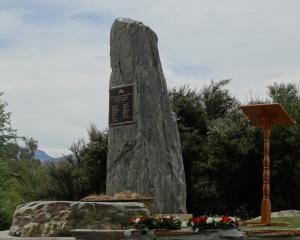The War Office and the Admiralty at Home have prepared for the gravest eventualities.
The mobilisation of the Navy has been completed, and, as we write, the mobilisation of the Army is in progress.
These may be wholly precautionary measures, for mobilisation, as The Times said the other day, is not war, but it would be idle to pretend that they are not strongly suggestive of war.
It will not be greatly surprising, indeed, if the Empire is at war within the next forty-eight hours.
In such an event the British people are entering upon a tragic experience of a kind that will be without parallel in the memory of the oldest of them, and that will searchingly test the moral fibre of the whole nation.
The prospect is one which cannot be regarded without apprehension, but it is, we trust, one which will be faced with fortitude.
The ominous character of the war news that is to hand this morning suggests that the time is opportune for the enrolment of eligible males in New Zealand in the National Reserve.
Lieutenant-colonel Stoneham, secretary of the National Reserve, writing to us on the subject, says: -
''We may possibly have to use up every particle of fighting strength in order to retain the great privileges and freedom we possess under the British flag, and we should in some measure prepare ourselves, and not look upon our fleet and army at Home to do everything for us out here.
"We have our Territorials, but we may need, before the war is over, the services of every able-bodied man in the country-we cannot tell.
"In any case, the National Reserve will afford an outlet for the patriotic enthusiasm of our citizens, and give them an opportunity of getting in touch with active defence matters at this critical juncture.
"We have in our ranks some of the best material in the country, and two are already offering their services in the event of an expeditionary force being sent away, and more still, who are anxious to defend their shores if necessary.''
Attention is directed to the fact that the National Reserve has arranged to hold a patriotic demonstration to-morrow night in the Garrison Hall, when an enrolment of new members will be made.
• One of the most charming features of Lord Howe Island, which is peopled by about a dozen families, leading an arcadian life, is the remarkable tameness of the birds.
''I never saw anything like it in my life before,'' said Mr R. Douglas Laurie, of the Liverpool University, who has been carrying on research work at the island, and who returned to Sydney last week.
''The forest abounds with birds, which show no fear whatever of man. When we strolled through the glades little tits would hop familiarly about gaily chirping songs of welcome. Sometimes they would alight on one's shoulder or an extended arm. When I used to search amongst old logs for grubs, moor hens would often come up within a yard of me. But the most extraordinary thing was the way the mountain mutton birds used to come to us when we `coo-ee-ed.' They would come running up, peck playfully at our trousers, and let us stroke them and pick them up. The inhabitants never interfere with the birds. Such a thing as throwing a stone at them would never occur to anyone, and if done would be regarded as an awful offence.''
- ODT, 5.8.1914.
• COPIES OF PICTURE AVAILABLE FROM ODT FRONT OFFICE, LOWER STUART ST, OR WWW.OTAGOIMAGES.CO.NZ

